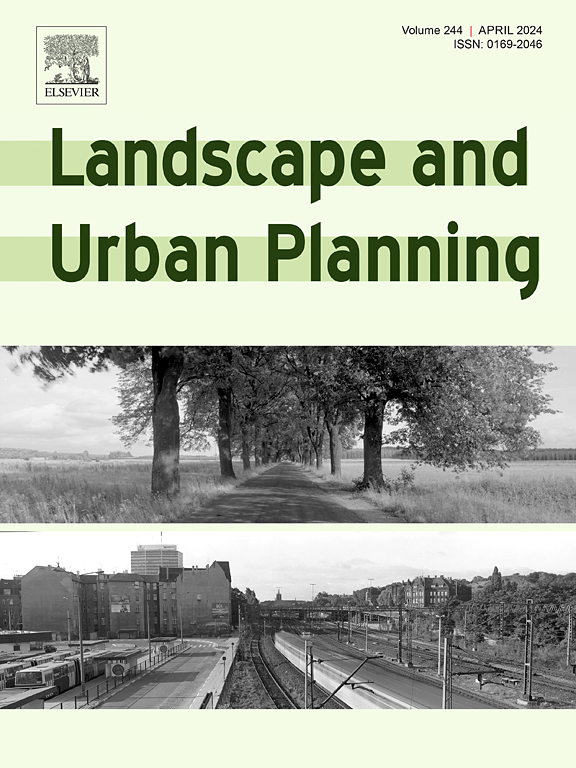Nature in nature-based solutions in urban planning
IF 7.9
1区 环境科学与生态学
Q1 ECOLOGY
引用次数: 0
Abstract
There has been a surge of academic studies on nature-based solutions in the last decades, reflecting the growing view that nature can help us address the climate and the ecological crises. While definitions of nature-based solutions are commonly referenced in the literature, “nature” itself is rarely defined. This article investigates the ideas of nature in nature-based solutions discourses in urban planning and argues that unpacking their connotations is crucial for a more precise and locally sensitive development of planning for humans and more-than-humans. The findings reveal that “nature” is often used abstractly or through proxies such as ecosystem services or biodiversity. Although the place-specificity of NBS is recognized in the literature, local definitions and values of nature are not sufficiently included, which can compromise the long-term uptake of NBS. The study further highlights the growing recognition of the plural values of nature and the potential for ecocentric approaches to challenge the anthropocentric underpinnings of NBS. The article concludes that unpacking the often-diverging meanings of nature is paramount for a more conscious development of NBS research in planning theory and practice, enhancing the effectiveness, inclusivity, and environmental justice of NBS initiatives and their effective mainstreaming. By embracing plural definitions of nature and fostering a deeper understanding of human-nature relationships, NBS research can support more sustainable, resilient, and equitable urban futures.
城市规划中基于自然的自然解决方案
在过去的几十年里,关于基于自然的解决方案的学术研究激增,反映出越来越多的人认为自然可以帮助我们解决气候和生态危机。虽然基于自然的解决方案的定义通常在文献中被引用,但“自然”本身很少被定义。本文研究了城市规划中基于自然的解决方案话语中的自然理念,并认为揭示其内涵对于更精确、更本地敏感的人类和超越人类的规划发展至关重要。研究结果表明,“自然”经常被抽象地使用,或者通过生态系统服务或生物多样性等代理来使用。虽然在文献中认识到国家统计局的地方特异性,但没有充分包括当地的定义和自然价值,这可能会影响国家统计局的长期吸收。该研究进一步强调了人们日益认识到自然的多元价值,以及生态中心方法对国家统计局的人类中心主义基础提出挑战的潜力。本文的结论是,揭示自然的不同含义对于在规划理论和实践中更有意识地发展国家统计局研究,增强国家统计局举措的有效性、包容性和环境正义,并有效地将其纳入主流至关重要。通过对自然的多元定义和促进对人与自然关系的更深入理解,国家统计局的研究可以支持更可持续、更有弹性和更公平的城市未来。
本文章由计算机程序翻译,如有差异,请以英文原文为准。
求助全文
约1分钟内获得全文
求助全文
来源期刊

Landscape and Urban Planning
环境科学-生态学
CiteScore
15.20
自引率
6.60%
发文量
232
审稿时长
6 months
期刊介绍:
Landscape and Urban Planning is an international journal that aims to enhance our understanding of landscapes and promote sustainable solutions for landscape change. The journal focuses on landscapes as complex social-ecological systems that encompass various spatial and temporal dimensions. These landscapes possess aesthetic, natural, and cultural qualities that are valued by individuals in different ways, leading to actions that alter the landscape. With increasing urbanization and the need for ecological and cultural sensitivity at various scales, a multidisciplinary approach is necessary to comprehend and align social and ecological values for landscape sustainability. The journal believes that combining landscape science with planning and design can yield positive outcomes for both people and nature.
 求助内容:
求助内容: 应助结果提醒方式:
应助结果提醒方式:


